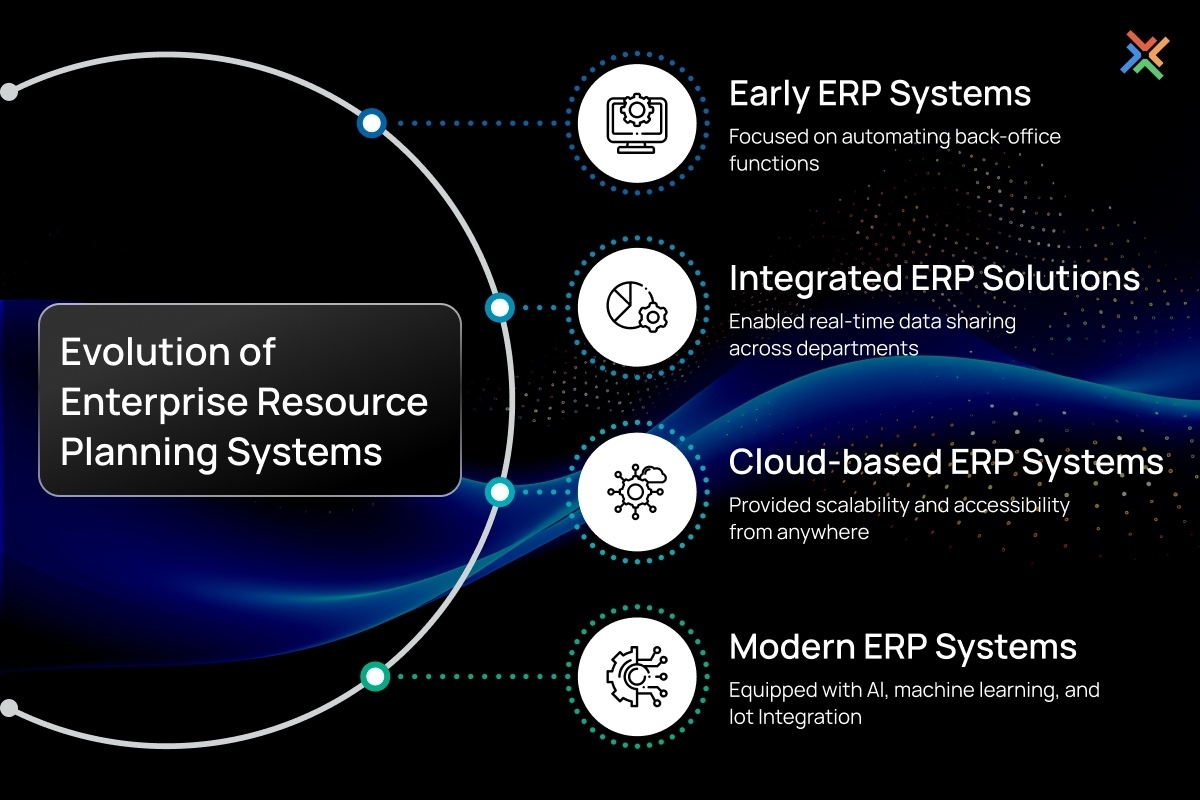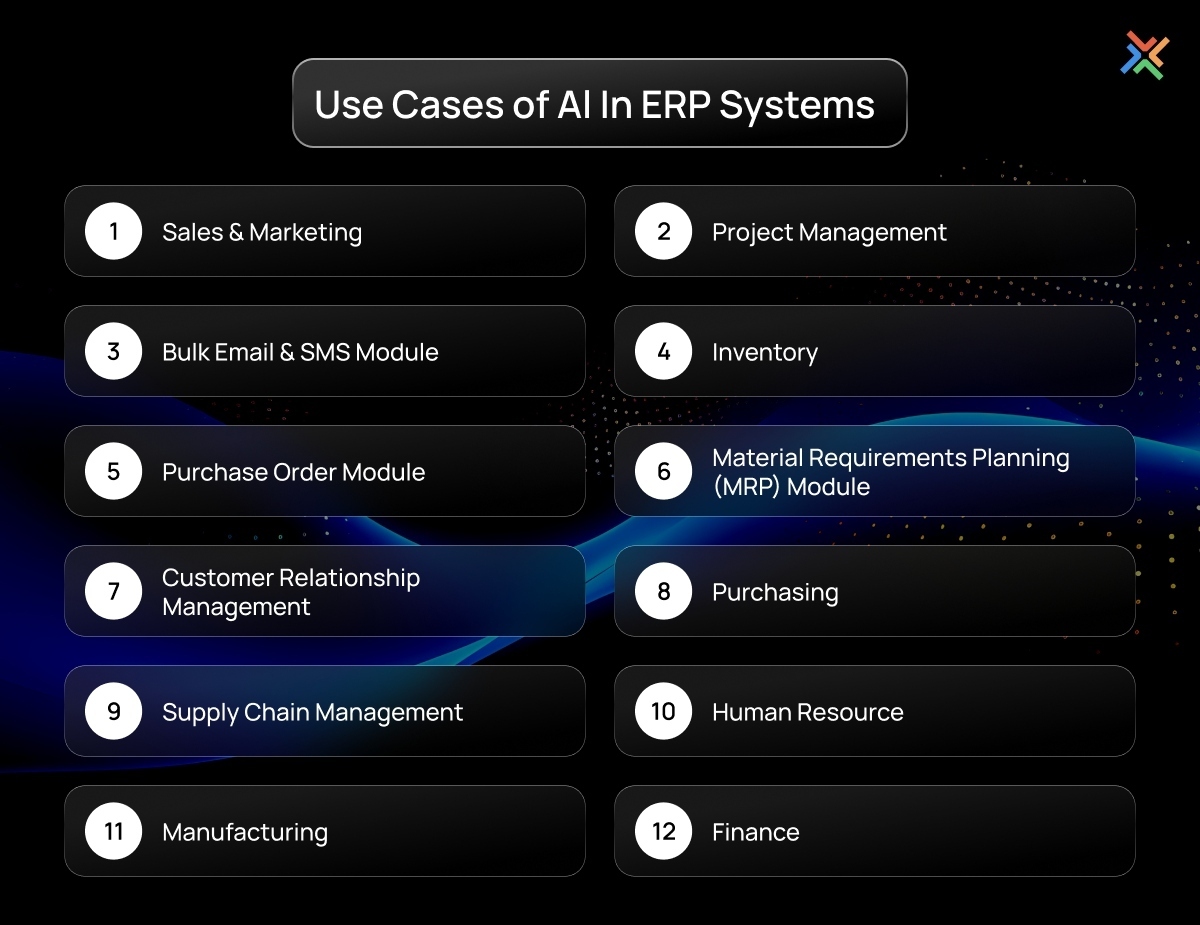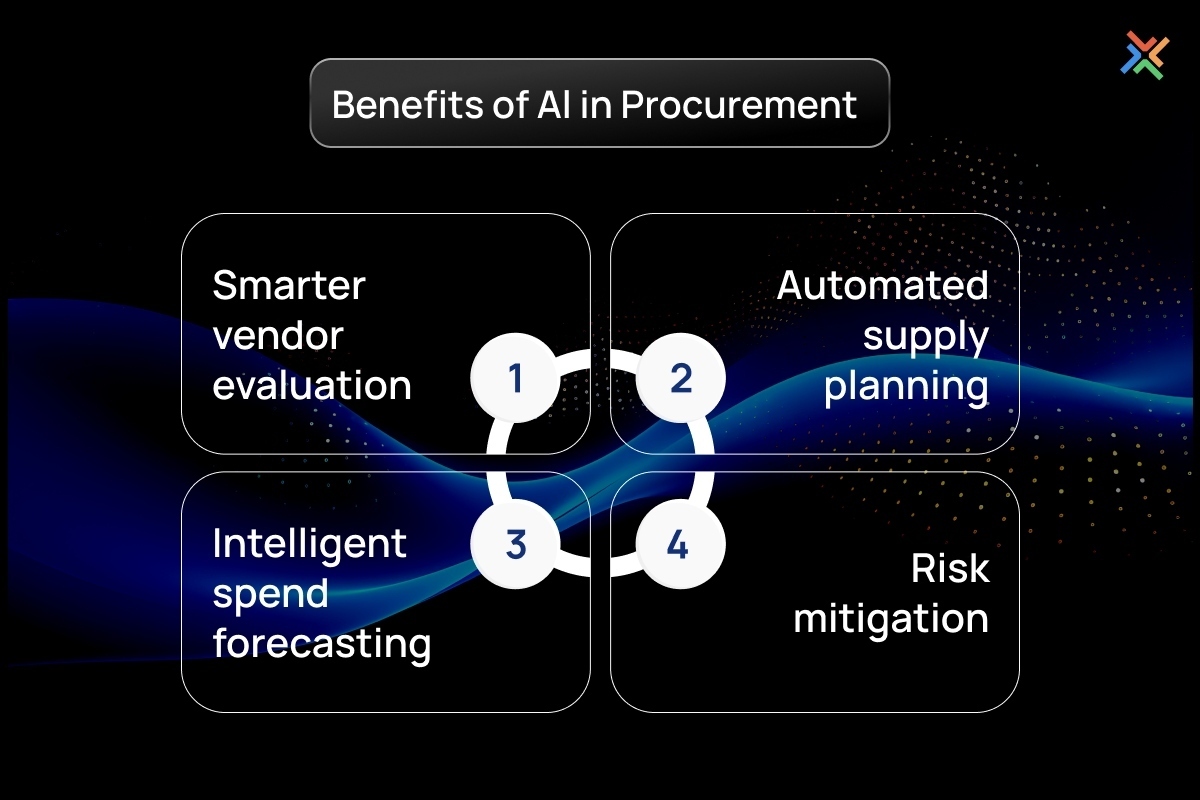From Procurement to Prediction: Why UAE Enterprises Are Replacing ERPs with AI-Led Modular Stacks
May 23, 2025

Ayush Kanodia
.png?w=1920&q=75)
UAE enterprises are under increasing pressure to modernize how they operate. With growing competition, faster market cycles, and rising customer expectations, outdated systems no longer meet the demands of today's business environment. Traditional ERPs, once considered the backbone of enterprise management, are now seen as rigid, slow to adapt, and costly to maintain. These systems often struggle to keep up with the speed and complexity of real-world operations.
This has led to a shift in mindset. Instead of relying on monolithic software that tries to cover every function, businesses are now exploring flexible AI-led modular alternatives. These AI-powered solutions are not only easier to adapt but also bring predictive capabilities and automation into the decision-making process. As a result, many companies are moving away from legacy ERP tools and investing in modern enterprise AI solutions that are better suited for today’s needs.

For UAE businesses looking to stay ahead, the search for better ERP alternatives has become more of a strategic move rather than a technology upgrade. And at the core of this shift is the demand for trusted AI development services in the UAE.
Why Traditional ERP Is Falling Short in the UAE Business Space
Many UAE businesses that once relied on traditional ERP systems are now finding those systems more limiting than helpful. What worked a decade ago is now slowing things down. These legacy platforms were built to centralize operations, but they were not built for speed, adaptability, or modern workflows.
- Limited adaptability
Traditional ERP systems are slow to adjust to changing business needs. Making updates or changes often involves long wait times and technical bottlenecks. - Disconnected departments
Many systems create silos where different teams operate separately. This leads to poor communication, slower decisions, and reduced visibility across operations. - Vendor lock-in
Businesses often depend on a single vendor for everything. This limits flexibility, delays innovation, and increases reliance on external timelines. - Expensive to maintain
Customization and upgrades come at a high cost. Over time, the return on investment starts to decline as the system becomes harder to work with. - Not built for modern workflows
Traditional ERP systems were designed for centralized control, not the fast, modular, and data-driven approach that today’s UAE enterprises require.
What Are AI-Led Modular Stacks?
AI-led modular stacks are a new way of building enterprise systems that focus on flexibility, intelligence, and ease of use. Instead of relying on one large software platform to handle everything, businesses can now choose smaller, focused modules that work together and are powered by artificial intelligence.
Each module handles a specific task, like procurement, inventory, finance, or analytics, and can be added, removed, or replaced based on business needs. These modules are not just independent but also smart. With AI running in the background, they can learn from data, automate tasks, and provide insights that help teams make faster and more accurate decisions.
The real strength of AI modular stacks lies in how easily they adapt. As a company grows, adds new products, or enters new markets, these systems can evolve along the way. There’s no need to rebuild the entire setup. You simply plug in the modules you need and let the AI connect the dots.
For UAE enterprises that operate in fast-moving industries, this approach offers a practical alternative to the limitations of traditional systems. It combines the power of custom AI solutions for enterprises in the UAE with the agility of modular tools, helping businesses move forward without being held back by outdated software.
Whether it’s smarter procurement, faster forecasting, or streamlined operations, AI-powered ERP systems built on modular stacks are quickly becoming the preferred choice for forward-looking organizations.

The Procurement-to-Prediction Value Chain: AI in Action
AI is changing how procurement and supply chains work, making them faster, smarter, and more responsive. In the UAE, where businesses often manage large supplier networks and complex logistics, using AI is no longer just an option. It’s becoming a core part of how operations are run efficiently from end to end. Here’s how AI helps across the full procurement journey.
- Smarter vendor evaluation
AI can analyze past performance, delivery times, pricing trends, and even external market data to help teams choose the right vendors. This kind of insight goes beyond basic reviews and allows for better supplier relationships and fewer surprises. - Automated supply planning
Instead of relying on static plans or gut instinct, AI systems can look at real-time demand, stock levels, and delivery schedules to plan supply needs more accurately. This reduces overstocking, delays, and unnecessary costs. - Intelligent spend forecasting
With access to historical data and spending patterns, AI can forecast future expenses with a high level of accuracy. This allows procurement teams to set smarter budgets and avoid unexpected shortfalls. - Risk mitigation
AI helps identify risks before they become problems. Whether it’s a supplier falling behind or a potential price hike on raw materials, predictive analytics in the supply chain can flag these issues early and suggest alternate options.
Across all these areas, the impact of AI in procurement in the UAE is clear. Businesses are no longer reacting to problems after they happen. They are using AI to see what’s coming and act before it does. An AI-driven supply chain doesn’t just help companies run better—it helps them plan better too.
How AI Strengthens Every Step of Procurement and Supply Operations

Smarter vendor evaluation
Choosing the right vendors has always been important, but now businesses can make that choice with real data. AI tools review supplier performance, delivery records, pricing patterns, and even outside market conditions. This helps teams move beyond surface-level reviews and build partnerships that are reliable and cost-effective. Fewer surprises, better outcomes.
Automated supply planning
Procurement teams no longer have to guess what stock is needed and when. AI looks at actual demand, inventory levels, and supply schedules to recommend the right actions. This kind of planning helps avoid last-minute orders, storage problems, and unnecessary spending.
Intelligent spend forecasting
Looking ahead with clarity is now possible. AI can study how money was spent in the past, spot patterns, and predict future costs. This gives procurement teams the confidence to plan budgets more effectively and avoid financial gaps when it matters most.
Risk mitigation
One of the biggest advantages of AI is its ability to flag risks early. It can spot signs of delays, disruptions, or rising prices before they hit the bottom line. When teams know what could go wrong ahead of time, they are better prepared to act fast and stay on track.
Across the board, businesses in the UAE are seeing how useful AI can be in procurement and supply operations. Instead of reacting to problems, they are able to plan ahead and make decisions that are both efficient and strategic. This shift is setting the stage for stronger, more agile supply chains.
How UAE Businesses Across Industries Are Using AI-Led Stacks
Across the UAE, businesses in different sectors are finding real value in switching to AI-led modular stacks. These are not abstract use cases. The shift is already underway, with companies applying AI in practical, measurable ways.
Retail: Smarter inventory and vendor decisions
One large retail chain in the UAE recently moved away from its rigid ERP setup. They had long struggled with inconsistent stock levels and delays from certain suppliers. After switching to an AI-driven modular system, they began tracking vendor performance in real time. Inventory planning became more accurate, and shelf shortages dropped noticeably. Procurement teams could now spot low-performing suppliers early and shift orders before it affected sales. The system also helped identify overstocking issues that were eating into margins.
Logistics: Faster deliveries and better routes
A logistics company based in Dubai wanted to reduce delivery delays across its transport network. Their existing ERP could not handle real-time data or route optimization. With AI integration in their ERP systems, they started predicting traffic conditions, vehicle availability, and delivery windows. The new modular setup allowed them to run predictive models without slowing down other parts of their operations. Within weeks, they cut delays by a significant margin and reduced fuel costs by optimizing delivery routes.
These are just two examples, but they reflect a broader trend. Digital transformation in UAE businesses is no longer just about moving to the cloud or adopting software. It’s about choosing flexible, intelligent systems that allow teams to act faster and work smarter. AI-led stacks are proving to be one of the most effective tools in this shift.
Choosing the Right AI Development Company in the UAE
Making the move to AI-led modular stacks is not just about selecting the right tools; it’s about finding the right people to build and support them. The success of your transformation depends heavily on who you work with.
Here’s what to look for when choosing an AI development company in the UAE:
- Proven domain expertise
Look for a team that understands your industry. Whether you're in retail, logistics, or finance, your AI partner should be able to map technology to real-world challenges. - Scalability from day one
AI stacks should not be built just for the present. They need to grow as your business grows. A capable development firm will ensure your systems can scale without rework. - Reliable support and handover
Post-deployment support is just as important as the build. Choose a partner who will stay with you through updates, changes, and ongoing improvements.
Understanding of compliance and security - Especially in the UAE, where regulations continue to evolve, your partner must be familiar with local data practices and enterprise-grade security protocols.
Modular AI stacks are different from plug-and-play software. They require planning, customization, and deep technical skills. A development team without experience in building and integrating these systems can leave you with more problems than solutions.
WDCS Technology has been helping UAE businesses turn complex processes into simple, AI-powered systems. From strategy to execution, our focus is on building enterprise solutions that are reliable, scalable, and easy to maintain. If you’re looking to hire AI developers or partner with one of the top AI development companies in the UAE, our team is here to help you move forward with confidence.
From System-Centric to Intelligence-Centric Enterprise Strategy
Enterprise technology in the UAE is entering a new phase—one that values intelligence over structure, and adaptability over standardization. The shift from system-centric thinking to intelligence-first strategy is already taking shape across industries. Businesses are moving away from static systems that require constant patching and toward AI-powered ERP solutions that learn, adjust, and improve over time.
This change is not just about technology. It reflects a larger mindset shift in how companies approach growth, efficiency, and resilience. The UAE has positioned itself as a region that embraces innovation quickly. From logistics to finance to retail, forward-looking businesses are exploring smarter ways to operate, and modular AI stacks are proving to be a key part of that journey.
If you're evaluating your next digital move, now is the time to consider a system that can keep up with your ambitions. Modular, intelligent, and built to adapt—AI-powered solutions offer the kind of flexibility that traditional tools simply cannot.
Take a closer look at what these systems can do for your operations, your teams, and your future.
To build an AI stack for your business, partner with WDCS, an AI development company in the UAE, building future-ready enterprise solutions.
Transform legacy ERP with modular AI stacks designed by top enterprise developers at WDCS
Partner with WDCS Technology to replace outdated ERP systems with intelligent, modular AI solutions that scale with your enterprise needs, designed for precision, adaptability, and effective digital transformation across business functions.